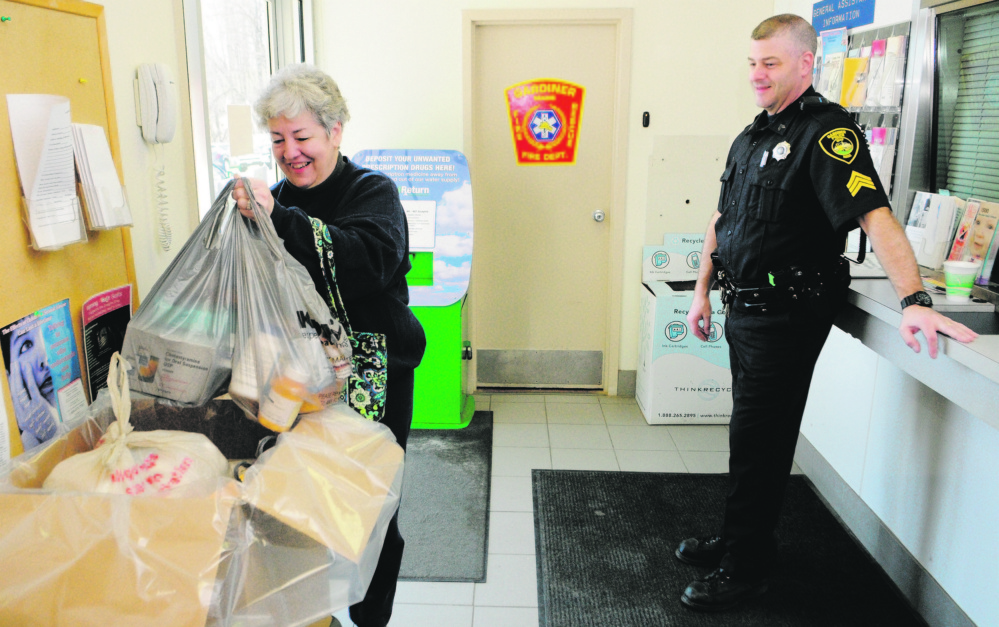Used appropriately, painkillers can be a safe and effective remedy for those who need them. The drugs, though, also have a downside – diversion, addiction, overdoses and crime – that’s become the subject of countless headlines and policy discussions in Maine and nationwide.
A 2014 federal rule change that allows pharmacies to take back unused medications was supposed to help curb the opioid abuse epidemic. The reluctance of big chains to take part in the voluntary federal program, however, has kept responsibility for drug collection and disposal in the hands of law enforcement.
But a county in northern California has an innovative idea – a take-back program funded by drugmakers, not taxpayers – and Maine should watch closely to see if this is a solution that would work here as well.
The U.S. Drug Enforcement Administration announced a year ago that pharmacies could accept and destroy consumers’ unwanted prescription drugs. The move was intended to get addictive medications out of family medicine cabinets, where they’re easily accessible to curious teenagers and adult addicts. Bad enough in and of itself, painkiller abuse can also drive those dependent on these drugs to try heroin, a cheaper and more deadly option.
But the response to the federal policy has been lackluster. Just 1 percent of pharmacies have put disposal programs in place, “with none of those belonging to the two largest chains, CVS and Walgreens, which have balked at the cost and security risks,” The New York Times recently reported.
How to safeguard the collected pills before they’re transferred to a disposal facility is one concern, according to the Times, and the cost of incinerating the drugs is another.
Community pharmacies are taking part (including about 10 in Maine), but the stores with the most locations aren’t involved. So instead of being able to dispose of unwanted drugs whenever they go to the drugstore, consumers have just two opportunities a year to toss their old medications: the semiannual Drug Take-Back Day sponsored by Maine and federal law enforcement officials.
Taxpayers pick up the tab for these take-back programs. But why should we? The companies that produce and profit from the product should be stepping up to pay for the harm it can do; instead, the costs are being shifted to us.
Holding industry accountable is a concept known as “product stewardship” – and it’s at the core of an Alameda County, California, ordinance that forces the pharmaceutical industry to underwrite drug take-back programs. The law passed its final court test in May, when the U.S. Supreme Court refused to hear a drug industry challenge to the measure, allowing it to stand.
Alameda County’s drugmaker-funded drug disposal program could become the first in the nation to launch next year. Rolled out over three years, it would include 110 sites for drug collection, at police stations, pharmacies and hospitals. Maine should pay attention – a plan that could save both lives and money is something we can’t afford to overlook.
Copy the Story LinkSend questions/comments to the editors.



Success. Please wait for the page to reload. If the page does not reload within 5 seconds, please refresh the page.
Enter your email and password to access comments.
Hi, to comment on stories you must . This profile is in addition to your subscription and website login.
Already have a commenting profile? .
Invalid username/password.
Please check your email to confirm and complete your registration.
Only subscribers are eligible to post comments. Please subscribe or login first for digital access. Here’s why.
Use the form below to reset your password. When you've submitted your account email, we will send an email with a reset code.